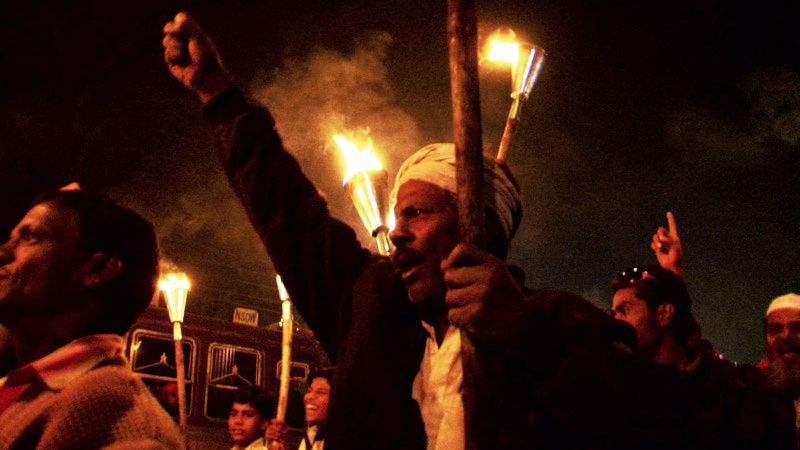Heartbreaking and moving, this 80-minute film explores the horrors human carelessness creates but also the resilience of those who are left behind to face the fallout. Bhopali is a powerful documentary about the injustices people in India faced after an American company caused a devastating gas leak that killed approximately 30,000 people in 1984.

The Union Carbide Corporation gas leak in Bhopal, India, killed around 3,500 people in one night, with the body count skyrocketing during the following days. Countless others were left physically and psychologically shattered—orphaned children staggered through the streets and doctors were overwhelmed with patients poisoned with unknown toxins. Wood became scarce and families were forced to burn the bodies of their loved ones in mass funeral pyres.
Meanwhile, Warren Anderson, the then Union Carbide chairman, quietly melded into the safety of the United States and the factory in India was abandoned.
No cleanup crew was sent to remove the tanks of toxic chemicals. No personnel arrived to detoxify the small lake where the factory dumped its waste—not even when evidence that the leak was caused by numerous ignored safety measures, cut corners and untested equipment, was anyone held responsible.
“People in Bhopal are still suffering, they’re still dying,” said Bhopal disaster campaigner Satinath Sarangi. “And the next generation is getting affected. There are horrific deformations that they’re born with. So the fact is that the suffering hasn’t ended, and the suffering continues and the individuals and agencies responsible for this mass disaster remain unpunished.”
Enter the “water-victim children.” Children born after the disaster are 10 times more likely to be born blind, deaf, have mutated limbs, an unnaturally high chance of developing cerebral palsy and a highly fragile immune system.
The chemicals abandoned by the pesticide company leached into the ground and made the water for three kilometres around poisonous. The local population had no choice but to use the water pumped up from the infected ground to quench their thirst.
Bringing the story to a personal level, editor and creator Van Maximilian Carlson introduces two families directly affected by the disaster. All that is left of the first family, formerly a family of 10, is two siblings. Their parents and five brothers and sisters died during the disaster. Their brother, who had initially survived, committed suicide years later, haunted by the ghosts of that night.
The second family lives on daily wages while they fight to save their 18-month-old daughter as she slowly slips away, likely poisoned by the water her mother drank while pregnant.
“What we have asked for is the cleanup cost,” said Rajan Sharma, attorney representative for the Bhopal plaintiffs seeking compensation in an ongoing court case.
Sharma is also demanding the victims be financially compensated and that Union Carbide, now owned and operated by Dow Chemical Company, funds a medical monitoring system to support future water victims.
“If there is justice in Bhopal, this world will be safer for all of us to live in because it would set the precedent [for companies being responsible for their mess],” said Bhopal activist Rachna Dhingra.
While the film makes you squirm guiltily for sharing a species that also includes heartless corporate scum, Bhopali still gets two big thumbs up.
Endless interviews, personal stories, media footage and professional perspectives are flawlessly woven together into an in-your-face documentary about the worst ever industrial disaster and the horrifying fallout that followed.
Bhopali screens Saturday Oct. 12 at 7 p.m. at J.A. de Sève Cinema located on 1400 de Maisonneuve W., in collaboration with the International Campaign for Justice in Bhopal North America, Amnesty International and Council of Canadians Montreal. Bhopal survivor and activist Sanjay Varma will be in attendance. For more information, visit cinemapolitica.org/concordia




